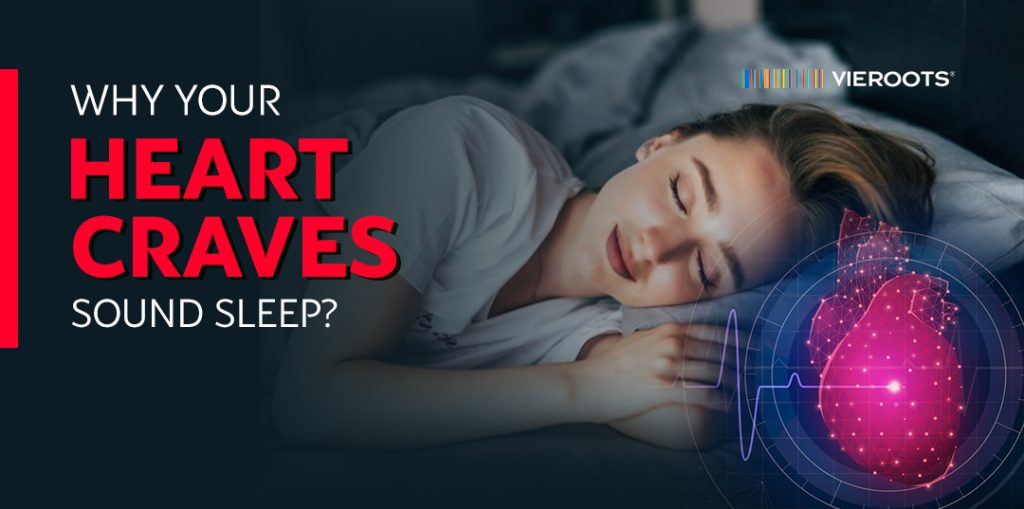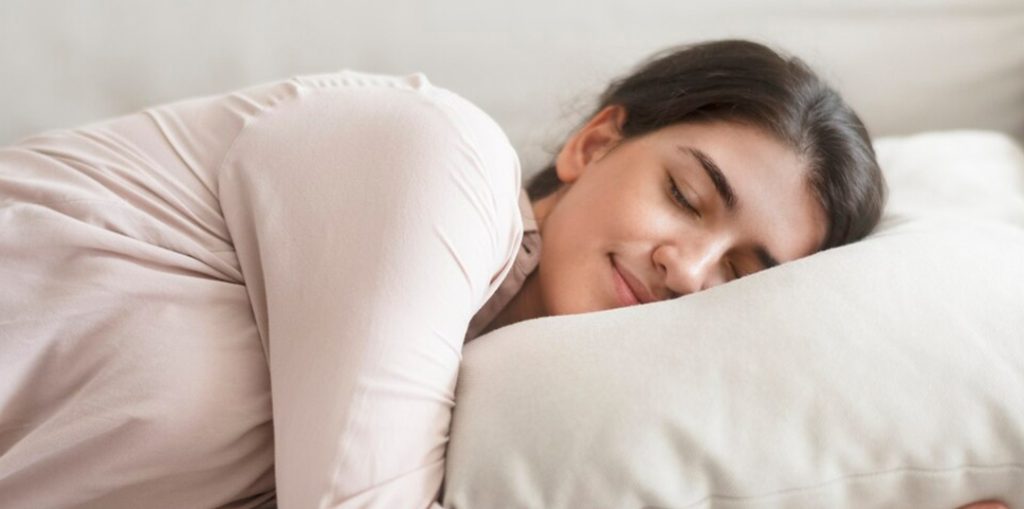Why your heart craves sound sleep?

Heart health is connected to health, longevity, and peak performance. They are all connected, which in turn is driven by sound sleep.
Introduction
From the moment we are born, our hearts are remarkable organs. To be more precise, much before our birth and until our ultimate deaths, our hearts never stop beating.
Though death has been scientifically redefined as “brain death” in recent years, there is one undeniable fact! The heart relentlessly supplies blood and nutrients to our brain too, thereby keeping it alive. How, then, does it rest?
Heart needs rest!

We know that, like every machine man has invented, every organ in the human body needs rest. Unlike any other machine, muscle, or body system, it rests by not stopping but slowing down. This slower rate is medically known as the resting heart rate.
Our hearts need to be at this resting pace for a significant percentage of our daily 24 hours. And sleep provides this the most. Our hearts slow down to their resting rate within a few minutes of falling asleep.
But how efficiently this happens depends on several factors. For instance, it depends on the health of our heart muscle itself.
In fact, much of the exercise that we do, especially the aerobic or cardio programs, is designed to make our heart muscles super-efficient so that they can pump more blood per beat, which allows them to slow down naturally when awake or asleep.
Heart health needs good sleep

Adequate sleep allows our hearts to spend the most time at resting heart rate. Multiple studies have proven that too little sleep or too much sleep are behind many metabolic disorders.
But the quality of sleep is also important for heart health. This is because in the initial light sleep and the subsequent deep sleep, it beats at the resting heart rate or even 20–30% lower than that. But in the next stage of Rapid Eye Movement (REM) sleep, often called “dreaming sleep,” the heart rate can vary dramatically depending on what we dream about.
This was recently explained by Dr. Lawrence Epstein, a top sleep expert at the Harvard-affiliated Brigham and Women’s Hospital. Says Dr. Epstein, “Your heart rate can vary quite a bit during REM sleep because it reflects the activity level occurring in your dream. If your dream is scary or involves activity such as running, then your heart rate rises as if you were awake.”
Conclusion
This is why our hearts are also craving for high quality sleep or sound sleep. For more in-depth information about how sleep affects our health, longevity and peak performance, refer to the new book ‘The Making of a Superhuman’ books.viegyan.com by wellness evangelist and biohacker Sajeev Nair.
If stress or other sleep disorders are keeping you awake, Vieroots Wellness Solutions has an Ayurvedic formulation to help, called ‘Relax’ that addresses sleep issues holistically. https://thoughtbiotics.vieroots.com/relax/


